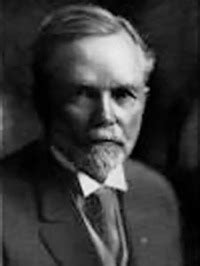Цитата Джорджа С. Клейсона
Деньги в изобилии у тех, кто понимает простые законы, управляющие их приобретением.
Темы цитат
Связанные цитаты
Я думаю, что следующий [21-й] век будет веком сложности. Мы уже открыли основные законы, управляющие материей, и понимаем все нормальные ситуации. Мы не знаем, как законы сочетаются друг с другом и что происходит в экстремальных условиях. Но я ожидаю, что где-то в этом столетии мы найдем полную единую теорию. Нет предела сложности, которую мы можем построить, используя эти основные законы.
Легкие, простые и великие законы, которые не ждут ничего, кроме знака от законодателя, чтобы распространить процветание и силу по всей нации, законы, которые заслужили бы ему бессмертные гимны благодарности из поколения в поколение, являются теми, о которых меньше всего думают или меньше всего хотят.
Я знаю, что некоторые умы сочли бы дерзкой идею связать законы, управляющие игрой наших органов, с законами, управляющими неодушевленными телами; но, хотя эта истина и нова, она тем не менее неоспорима. Считать, что явления жизни совершенно отличны от общих явлений природы, значит совершать серьезную ошибку, значит противодействовать продолжающемуся прогрессу науки.
Одна из причин, по которой люди могут ошибаться, почему мы можем не делать то, что пытаемся сделать, заключается в невежестве, в том, что у нас ограниченное понимание законов мира — физических законов, управляющих миром, и всех частностей мира. на которых работают эти законы. А еще есть неумелость, означающая, что знания доступны, но люди не могут правильно их применить. Третий источник — «необходимая ошибочность». То есть мы никогда не станем всеведущими, есть некоторые знания, которых мы просто никогда не достигнем, и есть пределы тому, что мы сможем сделать.






































